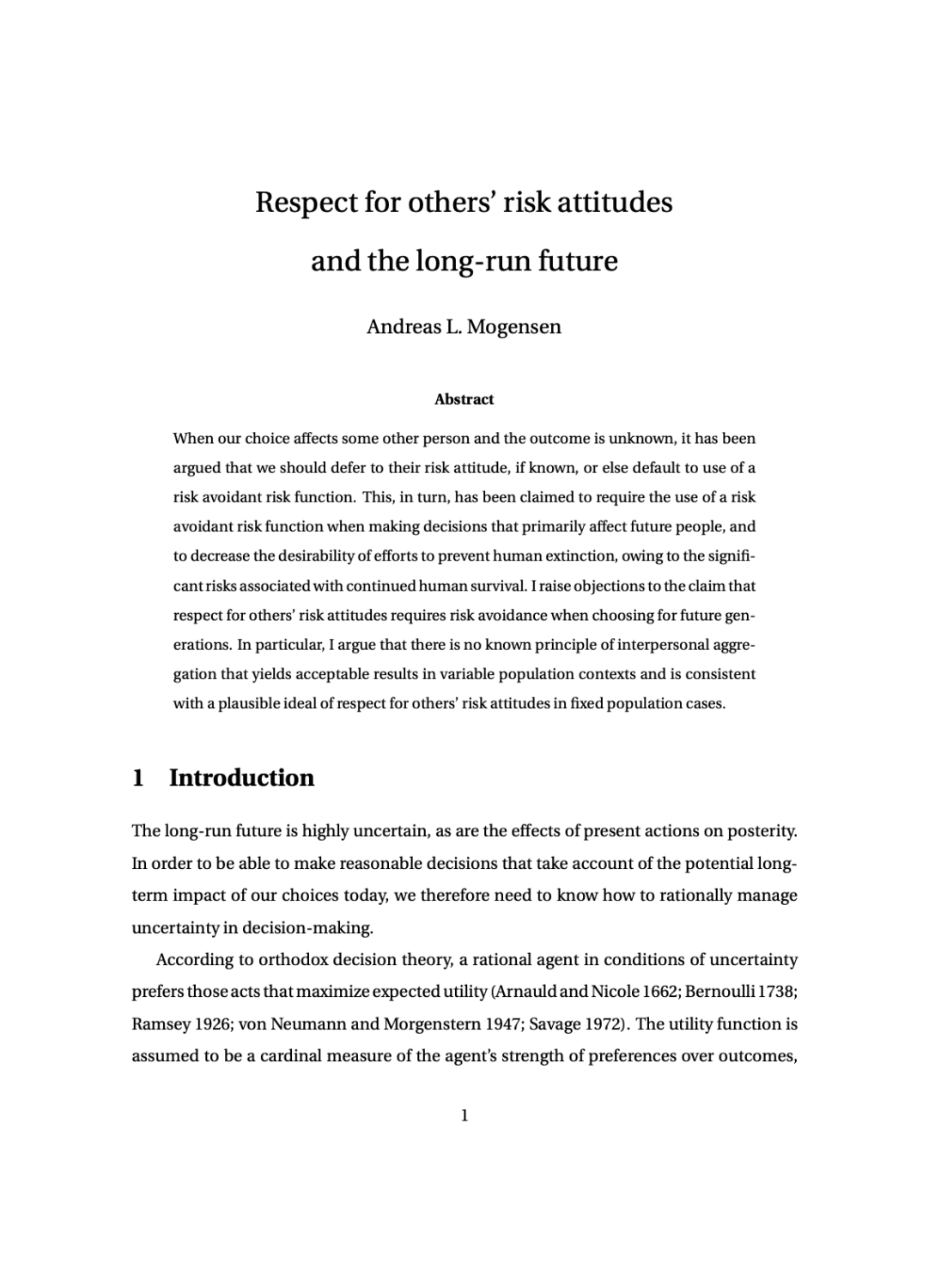Respect for others' risk attitudes and the long-run future
Andreas Mogensen (Global Priorities Institute, University of Oxford)
GPI Working Paper No. 20-2022, published in Noûs
When our choice affects some other person and the outcome is unknown, it has been argued that we should defer to their risk attitude, if known, or else default to use of a risk avoidant risk function. This, in turn, has been claimed to require the use of a risk avoidant risk function when making decisions that primarily affect future people, and to decrease the desirability of efforts to prevent human extinction, owing to the significant risks associated with continued human survival. I raise objections to the claim that respect for others’ risk attitudes requires risk avoidance when choosing for future generations. In particular, I argue that there is no known principle of interpersonal aggregation that yields acceptable results in variable population contexts and is consistent with a plausible ideal of respect for others’ risk attitudes in fixed population cases.
Other working papers
Population ethics with thresholds – Walter Bossert (University of Montreal), Susumu Cato (University of Tokyo) and Kohei Kamaga (Sophia University)
We propose a new class of social quasi-orderings in a variable-population setting. In order to declare one utility distribution at least as good as another, the critical-level utilitarian value of the former must reach or surpass the value of the latter. For each possible absolute value of the difference between the population sizes of two distributions to be compared, we specify a non-negative threshold level and a threshold inequality. This inequality indicates whether the corresponding threshold level must be reached or surpassed in…
Prediction: The long and the short of it – Antony Millner (University of California, Santa Barbara) and Daniel Heyen (ETH Zurich)
Commentators often lament forecasters’ inability to provide precise predictions of the long-run behaviour of complex economic and physical systems. Yet their concerns often conflate the presence of substantial long-run uncertainty with the need for long-run predictability; short-run predictions can partially substitute for long-run predictions if decision-makers can adjust their activities over time. …
Measuring AI-Driven Risk with Stock Prices – Susana Campos-Martins (Global Priorities Institute, University of Oxford)
We propose an empirical approach to identify and measure AI-driven shocks based on the co-movements of relevant financial asset prices. For that purpose, we first calculate the common volatility of the share prices of major US AI-relevant companies. Then we isolate the events that shake this industry only from those that shake all sectors of economic activity at the same time. For the sample analysed, AI shocks are identified when there are announcements about (mergers and) acquisitions in the AI industry, launching of…

